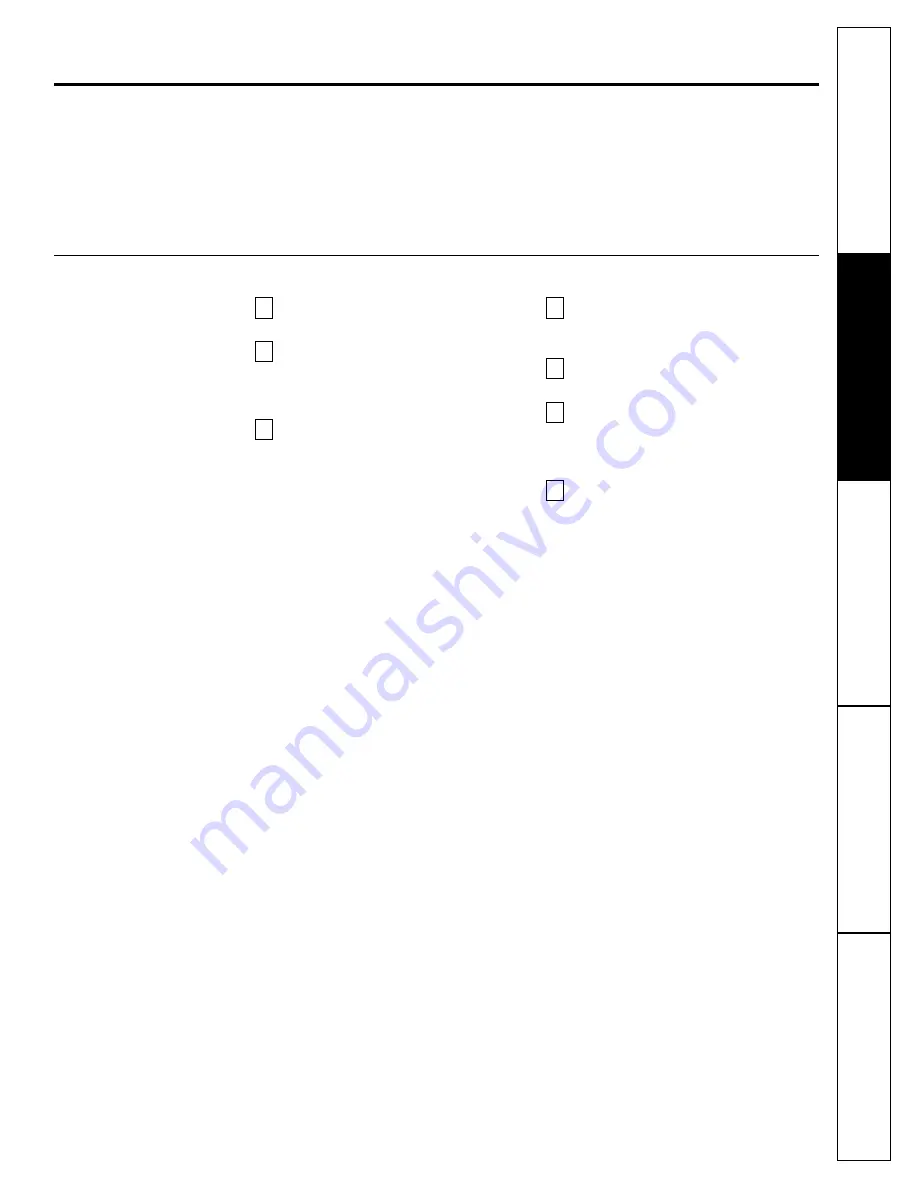
Consumer Support
Tr
oubleshooting T
ips
Operating Instructions
Safety Instructions
Installation Instructions
In most climates, defrosting will be
necessary only about twice a year.
To have your freezer operate most efficiently,
do not permit more than 1/2
″
(13 mm) of
frost to accumulate on the shelves.
To remove frost, scrape with a plastic or
wood spatula or scraper.
Do not use an ice pick or sharp-edged
instrument
as it may damage or scratch the freezer.
Do not use any electrical device in defrosting
your freezer.
For Complete Defrosting
Turn the temperature control to the
OFF
position and unplug the freezer.
Remove all food and place it in
corrugated boxes, insulated bags,
picnic coolers, etc. Use towels and
newspapers for insulation as needed.
With the door/lid open, use pans of
hot water to speed loosening of frost.
Remove large pieces before they melt.
Chest models have a defrost water drain
at the front.
NOTE:
Water may drip from the back flange of
the lid cover during defrosting. This is normal.
Ice builds up in the lid insulation when the lid is
open for adding or removing food, and melts
during the defrosting operation.
Sponge excess water from the bottom
of the freezer as it collects to prevent
overflowing.
After defrosting, clean the inside of the
freezer (see
Care and Cleaning
).
Replace the drain plug inside the
cabinet and the cap on the defrost
drain. Fold over and dry the gasket
on the hinge side of the lid.
Plug in the freezer. Return the
temperature control to its previous
position and return food to the freezer.
7
6
5
4
3
2
1
7
Defrosting instructions.
ge.com


































